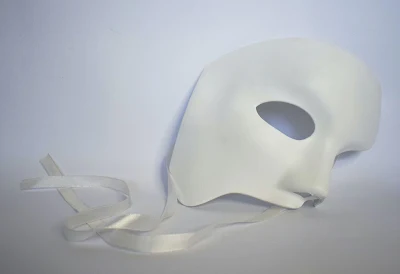Are you familiar with the impostor syndrome? You probably are, except you didn't know it was named that way. Imposter syndrome is, and I quote, "a form of sickly self-doubt that consists essentially in denying the ownership of any personal accomplishment". Put more prosaically, you constantly doubts yourself to the point of considering yourself an impostor about to be exposed by others. On Wikipedia, I learn that it is also called "self-taught syndrome, impostor phenomenon, imposture experience".
For some time now, I realize of how much the impostor syndrome has been present in my life for years, and in many fields:
- In music,
- At work,
- As a parent,
- And of course, in love
A sort of sword of Damocles is permanently hanging over my head. It takes the form of a sentence: "Of course they will find out that I'm incompetent (work)/not technically skilled or talented enough (music)/not a good example, a good reference point, that my children will be disappointed (parent)/uninteresting, boring, systematic, falot (love)".
I am an eternal impostor on the run. A typical habit I have is to attribute an idea that I had to someone else, especially at work: it gives the impression of supporting the other person, of fostering collaboration, but above all, it prevents the possibility of criticism.
But the price is high: the state of anxiety is permanent and generalized because the (virtual) situation of imposture nourishes it. My anxiety has been there for a very long time. I may have had addictive and self-destructive behaviours to try to silence it, although at the time I had not clearly identified it, just qualified as a vague and undefined "unwellness". I worry about everything all the time. It is pleasant to live...
But why am I telling you all this? To make these false masks fall, mine first. So that those who feel addressed by reading this start to question themselves, to take the first steps to free themselves because it is a huge weight that we put on our shoulders. According to Wikipedia, "it is estimated that about 70% of the population may be affected by this syndrome or experience an episode of it at least once in their lives".
Would you like to take a test? The psychologist Pauline Rose Clance has designed a simple one, rated out of 100. It is available here online on her website and it is a simple PDF so no personal data is sent: you read, take notes on your side and evaluate yourself. And it is freely available.
Freeing yourself from this kind of state of mind - because no, it's not a pathology - is essential to lowering your anxiety level. Anxiety ruins your everyday life, your relationships with others, your relationship with yourself, your reasoning and even your decision making. It is because we are gripped by a fear that we will make one decision rather than another, often more closed than open-minded.
Take the time to kick out that impostor that simply never existed.

